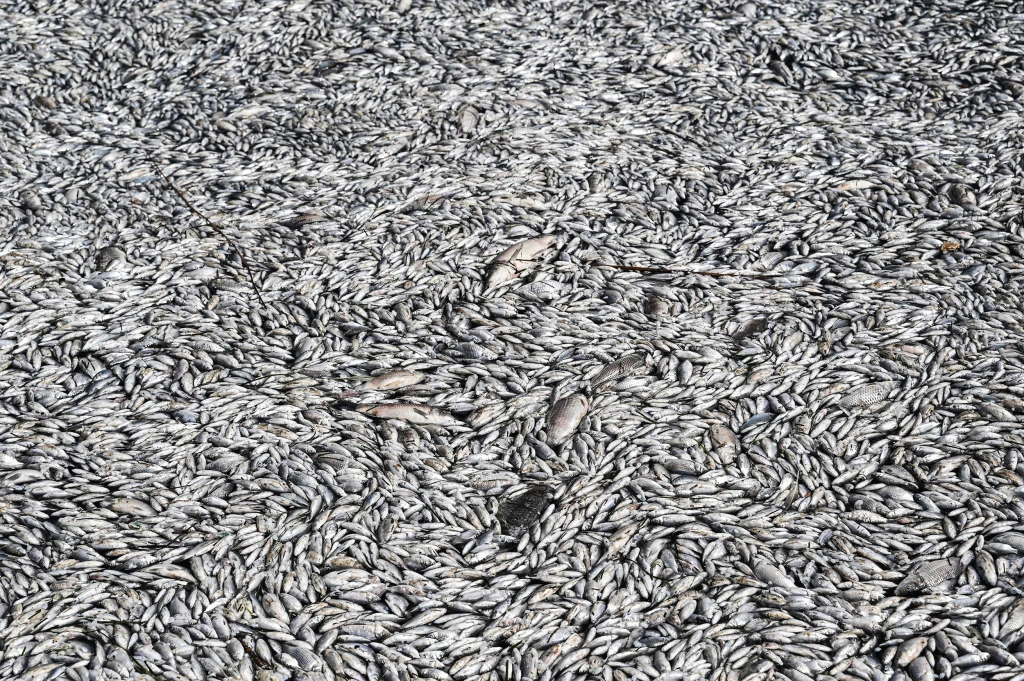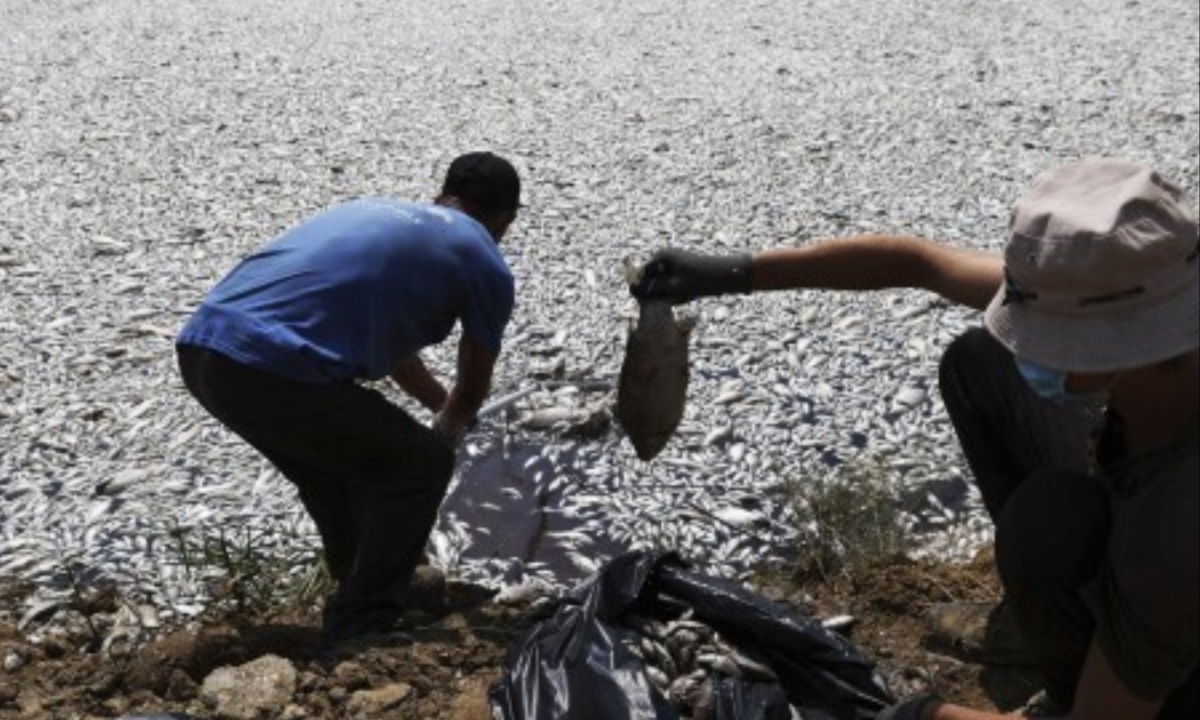A mass die-off of over 100 tons of dead fish has occurred in and around the port of Volos, central Greece, following extreme weather fluctuations. This incident, linked to severe drought and flooding in 2023, led to a massive accumulation of dead freshwater fish in the bay 320 kilometers north of Athens and nearby rivers. The situation has significantly impacted local businesses, particularly along the seafront, where commercial activity has plummeted by 80% in recent days.
The fish die-off has prompted a large-scale cleanup operation involving fishing trawlers, earthmovers, and contractors, all coordinated by regional authorities. These teams are working to remove the dead fish from the sea and transport them to an incinerator. The dead fish originated from Lake Karla, a body of water that was drained in the 1960s and restored in 2018 to mitigate drought impacts. However, the recent extreme weather has overwhelmed the lake, contributing to the environmental disaster.

Extreme Weather Triggers Catastrophic Fish Die-Off in Volos, Crippling Local Businesses
The flooding that contributed to this event occurred in fall 2023 when a deadly storm hit central Greece, causing water levels to rise abruptly. The subsequent severe drought and heat waves led to the water levels receding, exacerbating the die-off of fish. As a result, millions of dead fish have washed up along the shorelines and riverbanks, necessitating an extensive cleanup effort by regional authorities and contractors.
The mayor of Volos has criticized the regional authority for its slow response to the crisis, while the city’s Chamber of Commerce has announced legal action to seek compensation for the significant loss of business. The chamber reported that many businesses, particularly in the catering sector, have been forced to suspend operations due to the strong stench from the dead fish, which has driven away both residents and tourists, severely damaging the local economy.
The environmental and economic impact of this fish die-off has highlighted the vulnerability of the region to extreme weather events and the importance of timely intervention. The situation in Volos underscores the broader challenges faced by communities dealing with the consequences of climate change, where sudden and severe weather fluctuations can have devastating effects on both the environment and local economies.











































